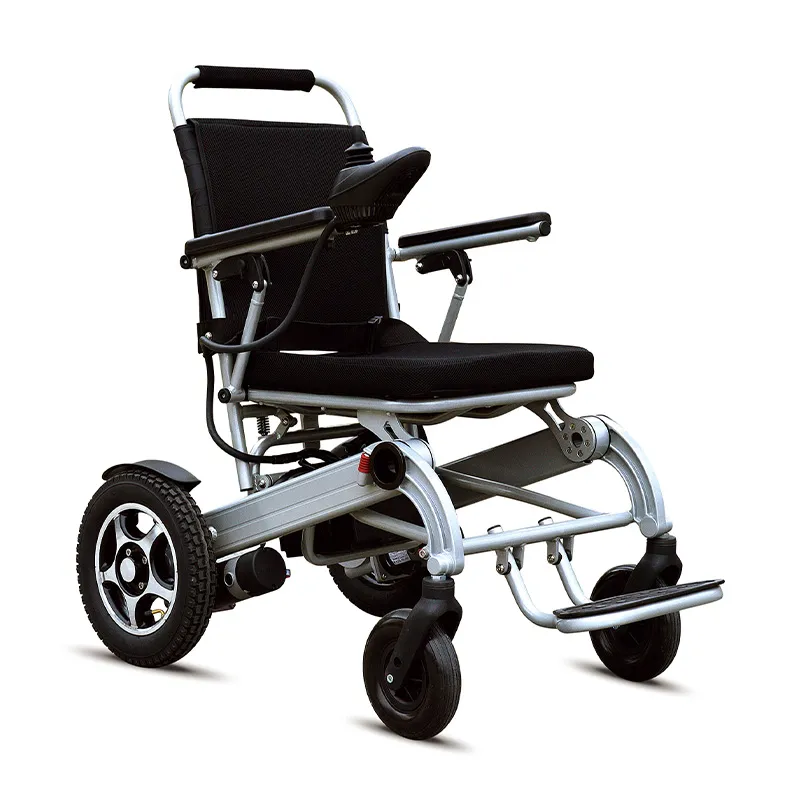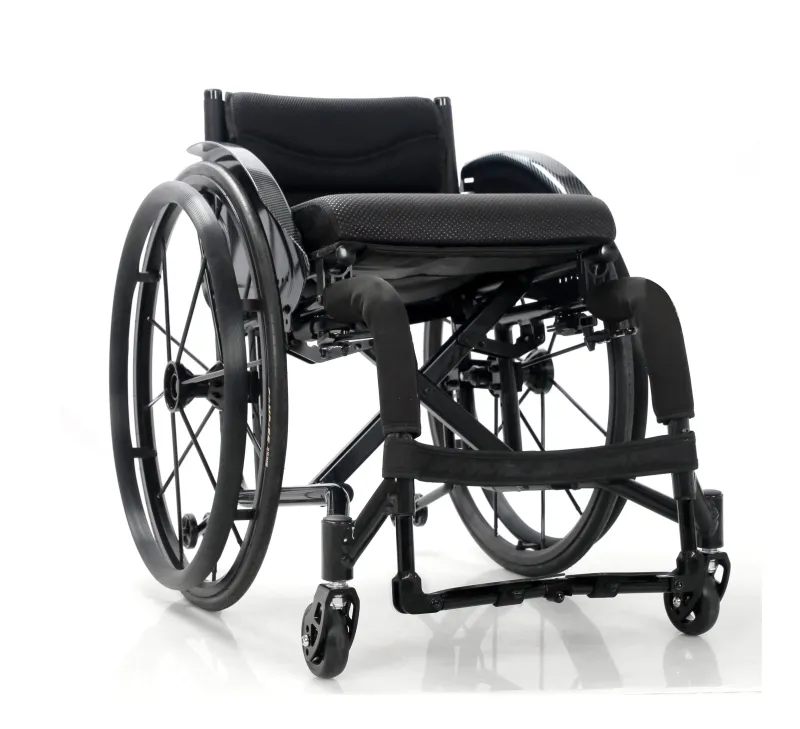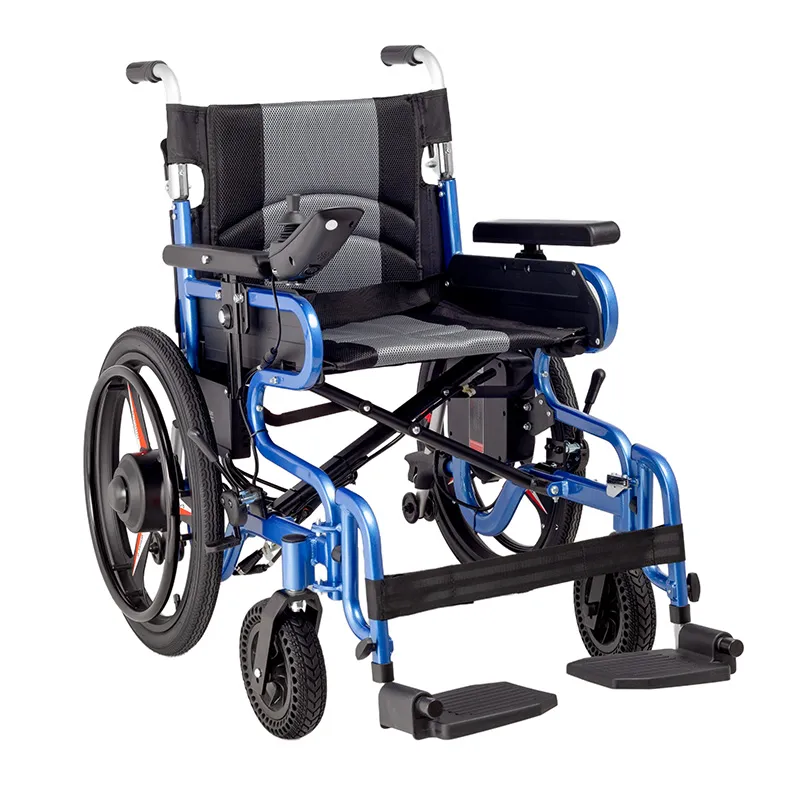
What type of wheelchair is best for the elderly?
2024-08-20 15:30
As the global aging problem becomes increasingly serious, more and more elderly people need to rely on wheelchairs to maintain their independence and mobility in daily life. However, there are many types of wheelchairs on the market with different functions, and choosing the most suitable wheelchair for the elderly is not a simple matter.
This article will explore the characteristics and applicable populations of different types of wheelchairs in depth, analyze their advantages and disadvantages, and help you make the most sensible choice.

What types of wheelchairs are suitable for the elderly?
Wheelchairs suitable for the elderly can be roughly divided into the following categories: manual wheelchairs, electric wheelchairs, lightweight wheelchairs and special wheelchairs. Each type of wheelchair has its own unique design and function, suitable for different needs and life scenarios.
1. Manual wheelchair
The manual wheelchair is the most traditional and common type of wheelchair, which is manually pushed forward by the user or caregiver.
Advantages:
● Lower price: Manual wheelchairs are more affordable than other types of wheelchairs.
● Lightweight and durable: Manual wheelchairs have a simple structure, light weight, and are easy to maintain.
● Exercise: Using a manual wheelchair can exercise upper limb strength and promote blood circulation.
Disadvantages:
● High physical strength requirements: Long-term use of manual wheelchairs requires great physical strength, which is not suitable for elderly people with poor physical strength.
● Difficulty of operation: Manual wheelchairs are difficult to operate in narrow spaces or on uneven ground.
Applicable people:
● Manual wheelchairs are suitable for elderly people with strong upper limb strength who can push the wheelchair by themselves, as well as those who have caregivers or family members to help push the wheelchair.
2. Electric wheelchairs
Electric wheelchairs are powered by electricity, and users operate them through the control panel or handle, which saves effort and time.
Advantages:
● Simple operation: Electric wheelchairs are easy to operate, and users only need to gently operate the control panel or handle to move forward, backward, and turn.
● Wide range of applications: Electric wheelchairs can easily cope with various terrains, such as ramps, grass, gravel roads, etc.
● Reduce physical exertion: Electric wheelchairs greatly reduce the user's physical exertion and are suitable for elderly people with poor physical strength or mobility difficulties.
Disadvantages:
● High price: Electric wheelchairs are expensive, and the battery needs to be replaced or maintained regularly.
● Heavy weight: Electric wheelchairs are heavy and inconvenient to carry and transport.
● Complex maintenance: The electric wheelchair has a complex structure and is difficult to repair when a fault occurs.
Applicable people:
● Electric wheelchairs are suitable for elderly people with poor physical strength, insufficient upper limb strength or who are completely unable to push the wheelchair by themselves.
3. Lightweight wheelchairs
Lightweight wheelchairs are simple in design, light in weight, and easy to carry and store.
Advantages:
● Light weight: Lightweight wheelchairs are usually made of lightweight materials such as aluminum alloy, which is easy to carry and transport.
● Simple operation: Lightweight wheelchairs have a simple structure and are easy to fold, suitable for short trips or temporary use.
● Affordable price: Lightweight wheelchairs are relatively cheap and suitable for families with limited budgets.
Disadvantages:
● Insufficient support: The support and comfort of lightweight wheelchairs are relatively low, and are not suitable for long-term use.
● Limited application scenarios: Lightweight wheelchairs are suitable for flat ground, but not for complex terrain or long-distance travel.
Applicable people:
● Lightweight wheelchairs are suitable for elderly people who need to use wheelchairs for short trips or temporarily, as well as those who need to carry wheelchairs frequently.
4. Special wheelchairs
Special wheelchairs are wheelchairs designed for specific needs or specific diseases, such as tilt wheelchairs, bathing wheelchairs and sports wheelchairs.
Advantages:
● Rich functions: Special wheelchairs are designed according to specific needs, rich functions, and can meet special needs.
● High comfort: Special wheelchairs are usually equipped with special support and comfort design to improve the comfort and safety of users.
● Improve the quality of life: Special wheelchairs can help users perform specific activities, such as exercise, bathing, etc., to improve the quality of life.
Disadvantages:
● Higher price: Special wheelchairs are usually more expensive and need to be customized according to individual needs.
● Inconvenient to carry: Special wheelchairs are heavy and inconvenient to carry and transport.
Applicable people:
● Special wheelchairs are suitable for elderly people with special needs, such as those who need to perform specific activities or suffer from specific diseases.

How to choose the most suitable wheelchair for the elderly?
1. Choose according to physical condition
The physical condition of the elderly is the primary consideration in choosing a wheelchair. For the elderly who have strong upper limb strength and can push the wheelchair by themselves, a manual wheelchair can be selected; for the elderly who have poor physical strength or insufficient upper limb strength, an electric wheelchair or a lightweight wheelchair should be selected.
2. Choose according to the use scenario
The living scenario and travel needs of the elderly are also important factors in choosing a wheelchair. For the elderly who need to travel frequently or carry a wheelchair, a lightweight wheelchair is a good choice; for the elderly who need to use a wheelchair for a long time at home or in the hospital, an electric wheelchair or a manual wheelchair is more suitable.
3. Choose according to economic conditions
The prices of different types of wheelchairs vary greatly, and the choice should be based on the family's economic situation and budget. Manual wheelchairs and lightweight wheelchairs are relatively cheap and suitable for families with limited budgets; electric wheelchairs and special wheelchairs are more expensive, but have more functions, suitable for families with higher needs and budgets.
4. Choose according to comfort and safety
The comfort and safety of the elderly are important considerations in choosing a wheelchair. You should choose a wheelchair with good support and comfortable design, such as a wheelchair with a backrest, seat cushion and armrests. At the same time, the safety of the wheelchair should not be ignored, and you should choose a wheelchair with a seat belt, brake system and anti-dumping design.

Recommended common wheelchair brands
When choosing a wheelchair, the reputation and quality of the brand are also important factors. Here are some common wheelchair brands on the market for reference:
1. Invacare Corporation: A world-renowned wheelchair manufacturer with excellent product quality and performance, suitable for elderly people with various needs.
2. Pride Mobility Products: Mainly produces electric wheelchairs and lightweight wheelchairs, with humanized product design and easy operation.
3. Permobil: Focuses on high-end electric wheelchairs and special wheelchairs, with rich product functions, high comfort and safety.
4. Golden Technologies: Provides a variety of wheelchairs, reliable product quality, and perfect after-sales service.
5. Merits Health Products: Produces a variety of wheelchairs, with affordable products, suitable for families with limited budgets.
Conclusion
Choosing the most suitable wheelchair for the elderly requires comprehensive consideration of many factors, including physical condition, usage scenarios, economic conditions, and comfort and safety. Manual wheelchairs, electric wheelchairs, lightweight wheelchairs and special wheelchairs each have their own advantages and disadvantages and are suitable for elderly people with different needs and situations.








